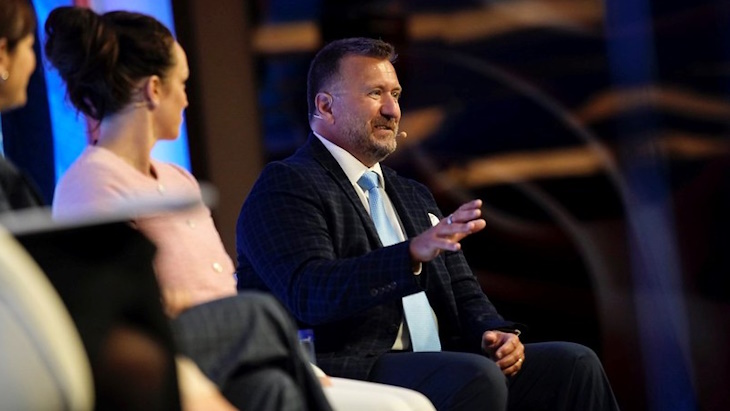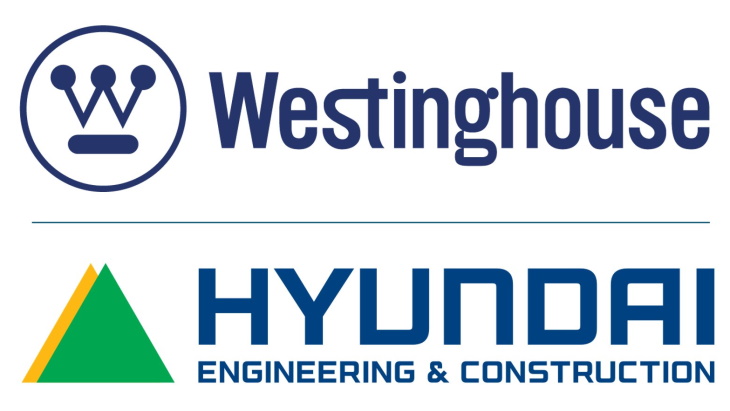Emirati companies benefit from nuclear program
-48.jpg) The construction of the United Arab Emirates' first nuclear power plant has seen 1400 Emirati companies share contracts worth a total of over $3 billion over the past six years, benefitting the economy and stimulating the growth of heavy industry in the country, the Emirates Nuclear Energy Corporation announced today.
The construction of the United Arab Emirates' first nuclear power plant has seen 1400 Emirati companies share contracts worth a total of over $3 billion over the past six years, benefitting the economy and stimulating the growth of heavy industry in the country, the Emirates Nuclear Energy Corporation announced today.The construction of the United Arab Emirates' first nuclear power plant has seen 1400 Emirati companies share contracts worth a total of over $3 billion over the past six years, benefitting the economy and stimulating the growth of heavy industry in the country, the Emirates Nuclear Energy Corporation (Enec) announced today.
-460.jpg) |
| UAE cable supplier Ducab secured its first international nuclear contract, with KHNP, in May 2016. The company said the contract built on its engagement with Enec (Image: Ducab) |
Contracts for the delivery of products and services for the four-unit Barakah plant, under construction in Abu Dhabi's Western Region, have been awarded over the past six years through collaboration between Enec and its prime contractor, Korea Electric Power Corporation.
Enec's industrial development team has worked with Emirati companies to help them to ensure their quality and safety policies and procedures meet the requisite standards and the requirements of the nuclear industry, benefitting those companies who also supply other customers and industries both at home and abroad. Enec's team has worked with companies to upgrade their systems and processes to enable them to gain American Society of Mechanical Engineers (ASME) accreditation.
One such company, Emirates Steel, gained the ASME's Quality System Certificate in 2012, enabling it to produce concrete reinforcing bar (rebar) for use in nuclear facilities. It supplied its first consignment of domestically-produced steel to Barakah in September 2013.
Another Emirati company, cable supplier Ducab, last month signed its first international export contract with Korea Hydro and Nuclear Power (KHNP) to provide nuclear industry standard cables for the Shin Hanul nuclear power plant. "This is a result of Ducab's success in supplying cables for the Barakah plant," Enec said. Ducab is the first cable manufacturer in the Middle East region to introduce and qualify 60-year, sustainable halogen-free cables meeting internationally-recognised standards, including those of the USA's IEEE.
Enec CEO Mohamed Al Hammadi said Emirati companies that had worked with Enec's team were now contributing to the construction of the nuclear plant at Barakah and also gaining a competitive advantage in providing nuclear-quality services and materials worldwide. He said that opportunity to develop and enhance the nation's industrial sector and provide a diverse range of opportunities had been a major factor in the UAE's decision to pursue nuclear energy. "The UAE's peaceful nuclear energy program has supported the diversification and growth of the nation's economy since its inception," he said.
Construction began on the first of four Korean-designed pressurised water reactors at Barakah, about 80 km west of the town of Ruwais, in 2012. The first unit, which is now more than 87% complete, is scheduled to start up in 2017 with all four units due online by 2020.
Researched and written
by World Nuclear News
_59102.jpg)
_49833.jpg)







_66488.jpg)


